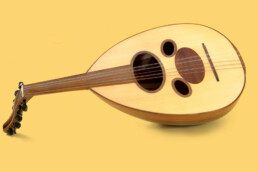This post is an exploration of the view that we ought to break our fasts with dates. The assumption comes from two main hadith, one is the hadith of Salman b. Amir al-Dabbi: ‘If you break your fast then do so with dates, and if you don’t find any, then with water for it is a purifier for you’ (al-Tirmidhi) which is considered a weak by some hadith scholars. The second is the description of the Prophet, related by Anas b. Malik and reported by Abu Dawud, that the Prophet would consume a few fresh dates or dry dates if he didn’t have fresh dates, or water if no dates were present, before offering the Maghrib prayer.
Thinking about the second hadith, the view of Ibn Taymiyyah came to mind:
Similarly, so when he ate dates and bread made from barley (and their like) – all the staple food of his country, does (the notion of) emulating the Prophet mean to specifically intend dates and barley to the extent that it is done by those who neither have dates growing in their lands nor does barley make up their staple diet, but where their staple consists of wheat, rice or other things? It is known that the second is legislated, the evidence of which is that upon the conquest of new regions the Companions would eat the staple of the respective country and wear the clothing of those lands, rather than intentionally seeking the staple foods of Madinah or its clothing. For if the second (i.e. seeking the staple foods of Madinah or its clothing) was better for the Companions they were worthiest of choosing the better.
Majmu’ al Fatawa, Kitab Salah
Some points:
1. It’s important to keep in mind that dates were the staple diet of the Arabs, easily and abundantly accessible, and something they’d eat everyday, all year round (dried for the off-season).
2. If we argue that the hadith establishes an istihbab (shar’i recommendation), is the only thing we take from the hadith the recommendation to break the fast with dates? The hadith ALSO states that the Prophet wouldn’t drink water, doing so only if he didn’t have dates, and that he’d only eat dates before Maghrib prayer. So is the recommendation only to eat dates, or a holistic one that says one ought to break the fast exclusively with dates (and no water) before the Maghrib prayer? If we say no, one may accompany the dates with water (and a whole host of fried fritters), and then pray, is this still ‘the sunnah’? What this speaks to is the way many enact the hadith of Anas b. Malik. They’ll staunchly argue that the hadith informs us that it’s better to break the fast with dates, but rather than follow the hadith through and offer the Maghrib prayer, they’ll follow up the dates with water and other drinks as well as a rich array of fried fritters: samosas, pakoras, falafels etc. If it’s “better” to eat dates because the hadith tells us this, then what for the rest of the hadith? This partial emulation seems inconsistent.
3. Here I’m simply critically exploring the idea that it’s a religiously obliged value to specifically eat dates and whether the Prophet doing so might have been a cultural fact rather than a religious one. The authoritative Hanbali jurist, Mansur al-Bahuti, explained in reference to the hadith of Anas b. Malik that what is analogous to fresh and dry dates is “everything sweet that isn’t cooked.” (Sharh al-Muntaha)
4. Given that we live in the UK and dates neither make up our staple diets nor are they relatively cheap, the extra effort to purchase dates seems unnecessary. Of course, the idea of buying dates to help Palestinians is a worthy cause, but this specific project of support seems to be one that ought to practiced the entire year – not specifically during Ramadan, and is more a political cause than related to shar’i thoughts around break-fast (iftar).
5. For those who like dates and have them available, I believe there’s value in breaking the fast with them, then praying, and then drinking water etc. However, context will heavily determine what’s optimum. For example, if you’re cutting sugars from your diet then dates may not be the best option, and likewise, if you’ve been lifting heavy in the gym and require a protein boost, then perhaps a protein smoothie is more apt.
6. Given the fact that most of our fruits in London are imports, dates can be accessed like many other fruits, so is it better to opt for dates instead of other fruits? If we argue it is mustahab (recommended) to break the fast with dates then of course yes. But if we see it as a cultural proclivity, I guess it’d be down to a matter of personal preference and looking for something analogous, a natural product that is sweet (fruits, etc).




